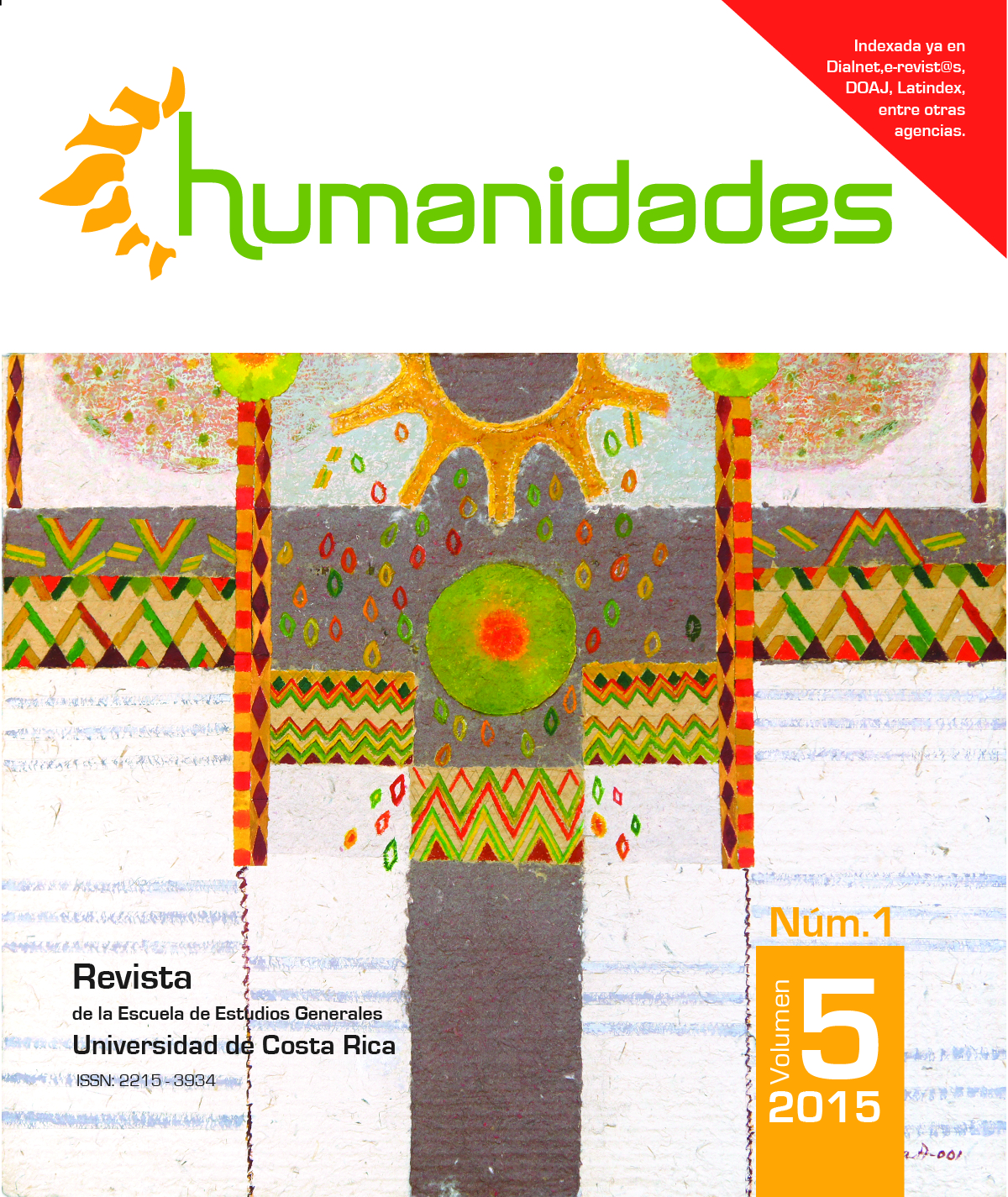Abstract
In this inquiry on the ‘autobiografía’ (autobiography) and the ‘curriculum operis’ of the Costa Rican writer Lilia Ramos I glimpse at the change of name scrounged by Lilia since her infancy, as a kind of incantation in which she asserts and reinvents herself since she was a little girl, to shine intellectually, academically and professionally as an adult, when she manages to transmute her ‘ugliness’ complex into vital resistance. I focus this reading on the perspective written by Judith Butler in the book Language, power and identity, a text in which the rhetoric refers to the violent and injurious action of names and their relationship with personal identity.References
Butler, Judith. (2004). Lenguaje, poder e identidad. Madrid: Síntesis.
Calvo, Yadira. “Lilia Ramos: La memoria en el espejo”. En Gold, Janet. (Comp.) Volver a imaginarlas, Tegucigalpa: Guaymuras.
___________ (1999) “Lilia Ramos, escritora y maestra”. En Revista
iberoamericana. Disponible en: http://revista-iberoamericana.pitt.edu/ojs/index.php/Iberoamericana/article/download/4327/4495
Eco, Umberto. (2013). Historia de la fealdad. China: Debolsillo.
Demetrio, Duccio. (1999) Escribirse: La autobiografía como curación de uno mismo. Barcelona: Paidós.
De Valbona, Rima. “Yolanda Oreamuno en el recuerdo de Lilia Ramos”. En Gold, Janet (Comp.) (1998). Volver a imaginarlas, Tegucigalpa: Guaymuras.
Eco, Umberto. (1997). ¿En qué creen los que no creen? México: Taurus.
Fallas, Teresa. (2013). Escrituras del yo femenino en Centroamérica 1940-2002. San José: Editorial Universidad de Costa Rica.
Montero, Rosa (2013). La ridícula idea de no volver a verte. Barcelona, Seix Barral.
Ramos, Lilia. (1978). Fulgores en mi ocaso. San José, editorial Costa Rica.
___________ (1963). Donde renace la esperanza. San José, ediciones Elite.
Von Mayer, Peggy. “La vida plena de Lilia Ramos”. En Áncora, La Nación, 23 de junio de 2013.

